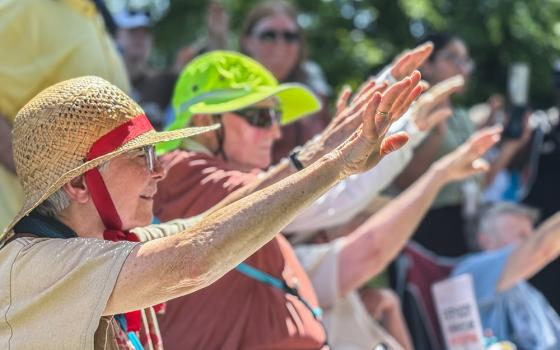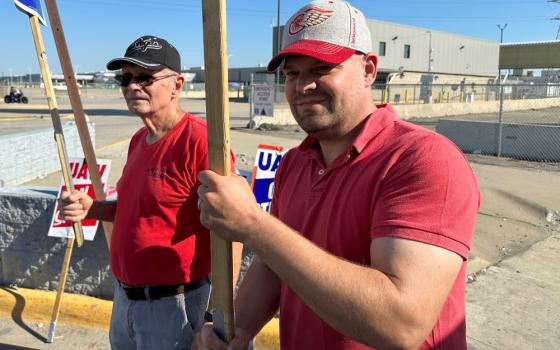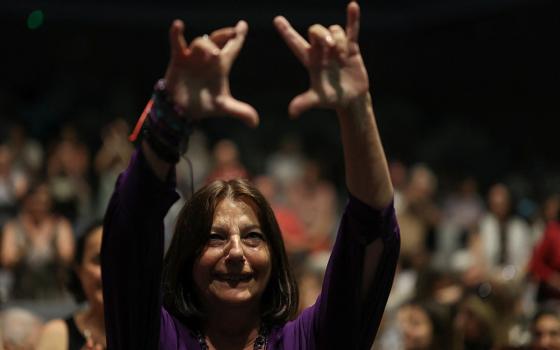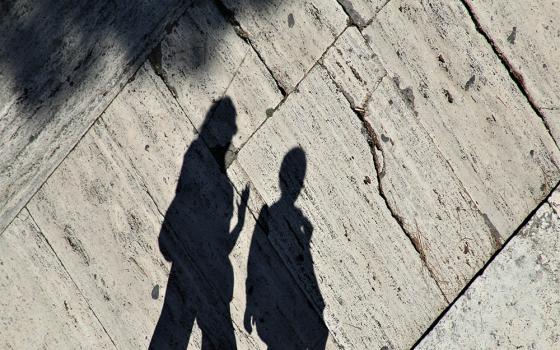A group of Catholic women on December 8 called for setting up a fact-finding team to study frequent cases of Catholic nuns dying by suicide in Indian convents.
The women, calling themselves as “concerned citizens” made the demand in a letter to Apostolic Carmel Sr. Maria Nirmalini, the newly elected president of the Conference of Religious India (CRI), the national body of major superiors of sisters, brothers and religious priests in India.
“We urge the CRI leadership to take urgent action in this matter. Your being in leadership, as a woman of substance gives us hope that the matter is heard and addressed with more sensitivity and urgency,” says the letter signed by 89 women, most of them nuns from various congregations.
What prompted the letter was the suicide of a 30-year-old nun November 30 in the chapel of her convent in the northern Indian state of Punjab. Sr. Mary Mercy belonged to the Franciscan Immaculatine Sisters, an Italian congregation founded in 1881.
“You must be deeply saddened and troubled at yet another suicide of a young religious Sister. We join in your anguish and want to express our solidarity at a time like this,” says the letter.
Nirmalini, as the CRI president is popularly known, acknowledged receipt of the letter and mourned the young nun’s death “as unfortunate and sad.”
In an email response to a Matters India query, she says her team will “certainly take these issues to enlighten all.”
However, she says they need prayers to become spiritual animators.
She says the CRI has not addressed the matter at its sectional level, but agrees that it requires the attention of all.
Nirmalini, who is also the superior general of her congregation, says she had returned to India only December 7 after a four-week visit to the East Africa Region.
“However in my own experience I feel it is very important for women religious to be accompanied and there is a guide/mentor for the young to express both within the congregation/community as well as a platform to address issues and seek help,” the head of the Indian religious said.
She also sees mental health is an important issue and “post pandemic has certainly added to the pressure of a challenging journey.”
The “concerned citizens” point out that Sister Mercy’s was the latest among nearly 20 reported nun suicide cases since 1997, almost all of them in Kerala, southern India.
“It troubles us, and we ask ourselves why some young women who join religious life with so much joy and eagerness to serve God and people end up taking their own lives,” the letter continues.
Advertisement
Sr. Jessy Kurian, a Supreme Court lawyer and a signatory of the letter, wonders if convents have become death traps.
Kurian, who was among the first to study suicide cases among nuns, points out that about 20 bodies of religious women were found in convent wells in Kerala.
Writing on her Facebook page December 2, she said she has reservations in believing Sister Mercy’s alleged suicide note.
Kurian regrets that nuns’ unnatural deaths are “not at all an issue in the Indian Catholic Church.”
The lawyer nun wants lay people to raise their voice for justice because “above all they are your daughters.”
Asserting that a nun is “an Indian citizen and an Indian woman,” she wants the cause of her unnatural death should be made public.
Kurian wants the Church to support the investigation in the interest of justice” as such frequent unnatural deaths of nuns raise a question.
Given below is the text of the “concerned citizens’” letter, signed by 89 women religious, :
To
Sr. Maria Nirmalini AC, Superior General
President, National CRI
Apostolic Carmel Generalate,
6, East End Road, PB 4130, Jayanagar,
T Block PO, Bengaluru, KARNATAKA 560 041.
Sub: The unnatural death of Sr. Mary Mercy FIS on Nov 30, 2021
Dear Sr. Maria Nirmalini,
You must be deeply saddened and troubled at yet another suicide of a young religious sister. We join in your anguish and want to express our solidarity at a time like this.
Sr. Mary Mercy’s untimely death is the latest of nearly 20 reported suicides since 1987 involving novices and sisters serving in Catholic religious communities in Kerala. It troubles us and we ask ourselves why some young women who join religious life with so much joy and eagerness to serve God and people end up taking their own lives.
Suicides and suicide attempts have a ripple effect that impacts families, friends and communities, including religious communities. For those bereaved by the suicide of a loved one, the experience is not only very traumatic but also stigmatizing.
We acknowledge that suicidal behaviour is complex and that there is no single cause for why people attempt or commit suicide. Religious communities must be capacitated to recognize the warning signs early on. They need to provide a supportive environment for community members to seek mental health support in a timely manner. Suicides are certainly preventable and much can be done to prevent a suicide at the individual and community levels. Religious communities must promote connectedness, teach coping and problem-solving skills, create a supportive and safe environment for every member and identify and support members at risk.
Media coverage often reflects hesitation of congregations and Church leaders to report the news and this leads to delay in investigations besides suspicion on the cause and circumstances leading to suicide. This puts a blotch on the Church and only serves to add unnecessary speculations, besides more pain and anguish to loved ones.
As the most representative body of the Catholic religious in India, CRI is best placed to take up this issue of suicide among religious, particularly women religious in India, both within congregations and at a regional and national level. We strongly feel that CRI must proactively engage on this issue in the following manner:
§ Explore the systemic and personal reasons leading to suicides and find ways of resolving the related issues;
§ Promote, and if possible, provide training for religious congregations to understand and respond to the mental health needs of their members, in a timely and supportive manner;
§ Insist that every congregation put in place a mental health policy and action plan in consultation with professionals;
§ Actively work to promote and nurture the mental and spiritual wellbeing of their members by encouraging the creation of space in congregations for individual expressions and concerns to be heard and addressed better;
§ Create helpline networks, preferably of women religious with counselling skills, and publicize the same so that sisters in distress can be counseled, accompanied and assisted in dealing with the congregations and if necessary, family members;
§ Encourage congregations to be open to providing shelter to women religious who would like to leave their congregations or perhaps join a different congregation;
§ Network with NGOs and Church associations that provide job skilling;
§ In the extreme event of death by suicide, congregations must be encouraged and supported to conduct suicide audits to learn lessons and inform prevention plans.
We strongly advocate that the CRI appoint an objective and competent fact finding team of experts to look into the cases of suicides starting with Sr. Mary Mercy FIS, so that we can find out what needs to be done in order to prevent the repeated occurrence of these sad and traumatic incidents.
We urge the CRI leadership to take urgent action in this matter. Your being in leadership, as a woman of substance, gives us hope that the matter is heard and addressed with more sensitivity and urgency.
In concern and solidarity,







